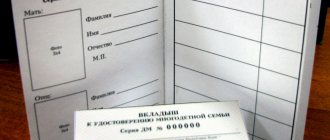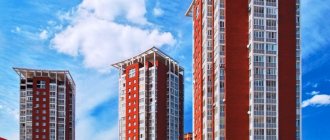How to get housing under a social tenancy agreement
A social tenancy agreement is drawn up between the homeowner and the tenant. The state acts as the owner, and the tenant can be any person who needs to improve their living conditions and is recognized as low-income. The criteria for recognizing a family as low-income are established by local authorities, based on the standard of living in the region.
So, who is provided with housing on social rent?
- Citizens who do not own any housing.
- Families with their own living space are below the social norm.
- Living in housing that does not meet established living standards and is considered dilapidated or in disrepair.
- Living together with a disabled person suffering from a severe form of a chronic disease, included in the list of government decree No. 817 of December 21, 2004.
After providing the apartment for social rent, it can be privatized.
The above citizens can be put on a waiting list to receive social housing for rent. Read about how a social tenancy agreement for residential premises is concluded here to be aware of the specifics of the execution of this document.
Having a problem? Call a lawyer:
Moscow and Moscow region (toll-free call) St. Petersburg and Leningrad region
Outlined the "squares"
We are talking about apartments for people who are in line to improve their living conditions. Among them are residents of dilapidated buildings, combat veterans, orphans, large families, and tuberculosis patients. The categories of beneficiaries are established in the law “On the provision of residential premises of the housing stock of the Voronezh region under social tenancy agreements.”
For single citizens, apartments should be selected in the range from 33 to 41.9 square meters, for families of two people - from 42 to 53.9.
If there are three or more residents, then each person must have at least 18 meters of total area. “At the same time, the maximum area of the premises provided for the entire family should not exceed two times the minimum value of the provision norm for one family member,” the law says. RG requested an official interpretation of this phrase from the Department of Social Protection of the Voronezh Region, and this is what they told us:
“For example, a family of three has the right to claim residential premises with an area of at least 54 square meters. However, the design features of residential buildings may not provide for the presence of apartments whose area is exactly equal to the provision rate. In this regard, the legislator has provided for a larger deviation from the norm for providing residential space for families consisting of three or more members. This deviation should not be more than double the norm for one family member (which is equal to 18 square meters). Thus, if there is no 54-meter apartment in the Voronezh region’s stock, it is allowed to provide a family of three with living space whose area exceeds this value, but not more than 36 square meters.”
The legislator provided for an upward deviation from the norm
This interpretation will certainly please beneficiaries queuing for housing. At the same time, the new version of the law also contains the opposite statement - that the area of the apartment provided may be less than the norm, but then for each family member it is necessary to provide at least 11 “squares”. In addition, citizens must give written consent to receive housing of a smaller area.
Meanwhile
There are not enough apartments for everyone in need of housing on social rent in the region. Those premises that are available in the housing stock do not always meet the space standards and therefore cannot be allocated to those on the waiting list. Amendments to Voronezh legislation will make it possible to bypass some of the restrictions and speed up the solution to the housing problems of beneficiaries. Thus, the Ministry of Defense handed over more than 50 large apartments in Voronezh and Novaya Usman. Now they will be able to be issued to large families who have been waiting for their turn for more than one year.
The procedure and norm for the provision of social rental housing
The provision of residential premises under a social tenancy agreement is handled by the Housing Fund Department. Upon submission of an application with attached supporting documents on the relationship of the living people, as well as supporting documentation on the right to move into existing housing, the information provided will be verified.
After verification, a social tenancy agreement is drawn up and registered. By signing the agreement, a person receives the right to move in and live in the specified residential premises for an indefinite period.
Housing under a social rental agreement is provided in accordance with the square footage standards established at the legislative level. Social housing norm per person here.
For the Moscow region, the standard for social housing for rent is 18 square meters. meters per resident.
In other cities, it may be slightly different, as it is regulated by local authorities based on the level of housing provision for the population.
Special requirements for residential premises
Housing obtained through social rent is considered city property and is not subject to donation, sale or inheritance. There is a minimum fee for it, which is set by the city authorities. In addition to paying for housing, the social housing tenant pays for utilities.
An employer who has children can register them in the accommodation they live in. We have already told you how to register a child in a municipal apartment. To register distant relatives, the consent of the city authorities is required. Also, this housing can be privatized if the citizen has not previously used the right of free privatization. We have already covered a step-by-step guide to free privatization of an apartment.
The death of the tenant does not terminate the social tenancy agreement if members of his family are included in the agreement. Subsequently, they are subject to all rights specified in the rental agreement. If you are interested in the conditions for terminating a social tenancy agreement, go here.
Providing residential premises for social rent out of turn
The priority categories are:
- Living in premises that are unsuitable for habitation and cannot be renovated.
- Children without parents and recognized as orphans.
- People with a chronic disease that is severe.
- Citizens released from prison and illegally convicted.
Persons classified as being out of turn must be provided with social housing immediately after their out-of-turn status is recognized and they submit the appropriate application. The concept of “out of turn” implies the absence of any separate queues of out-of-turn.
Some regional authorities are expanding the list of people out of turn, adding at their discretion:
- WWII veterans;
- large families with three or more minor children.
The social tenancy agreement for these citizens is somewhat different from the usual one and depends on the area of residence. The number of children in a large family to receive social housing, depending on the region, may not be three, but four or five.
The Housing Department is responsible for the provision of social housing.
How to rent housing on social rent in Nizhny Novgorod
? Good afternoon Please tell me if our family can rent housing using social security. Hire in Nizhny Novgorod, preferably Sormovsky district? My husband and child have registration in the city of Balakhna, mine in the Tula region. We live permanently in Nizhny Novgorod, but periodically we have to change rented apartments. The child will soon go to first grade, but it is unknown which school he will go to. It is not possible to purchase a home with a mortgage because the income is low. And another question, is there an opportunity for our family to purchase our own home?
Victoria MIKHAILOVA,
Nizhny Novgorod
(call to the editor)
Ivan DMITRIEV,
an employee of the Ministry of Social Policy of the Nizhny Novgorod Region answers - Providing citizens with housing within the framework of current legislation is carried out by providing state support within the framework of ongoing target programs or by providing residential premises under a social rental agreement by local government bodies.
Citizens who are registered or recognized as in need of residential premises can take part in programs to improve housing conditions implemented in the Nizhny Novgorod region. Citizens are recognized as needing residential premises on the grounds established by Article 51 of the Housing Code of the Russian Federation.
The decision to recognize citizens as in need of residential premises and to include them in the list of participants in existing housing programs is made by local government bodies at the place of residence of citizens on the basis of submitted documents. In case of non-compliance with the requirements of the implemented housing programs operating in the Nizhny Novgorod region, the improvement of the living conditions of citizens is carried out on a general basis.
In accordance with Articles 49, 52 of the Housing Code of the Russian Federation, residential premises of the municipal housing stock are provided under a social rental agreement to low-income citizens who are registered as needing residential premises with the local government body at the place of registration (place of primary residence), in order of priority, based on the date of registration for registration. Within the framework of the Law of the Nizhny Novgorod Region dated November 16, 2005 No. 179-Z “On the procedure for local government bodies of urban districts and settlements of the Nizhny Novgorod Region to register citizens as those in need of residential premises provided under social tenancy agreements”, the authority to register as those in need of residential premises are entrusted to local governments.
You do not have permanent registration in the city of Nizhny Novgorod. In this regard, the administration of the city of Nizhny Novgorod, as an authorized body, does not have legal grounds for registering your family as those in need of residential premises for the purpose of subsequent provision of housing.
Thus, in order to be registered with the above, you need to resolve the issue of permanent registration, and then contact the local government body at the place of permanent registration with an application and attaching the necessary documents.
According to Article 4 of the Law of the Russian Federation of June 25, 1993 No. 1542-1 “On the right of citizens of the Russian Federation to freedom of movement, choice of place of residence within the Russian Federation,” the registration authorities of citizens of the Russian Federation at the place of stay and at the place of residence within the Russian Federation are territorial bodies of the federal executive body authorized to exercise control and supervision functions in the field of migration. Based on the above, regarding the issue of registration, you have the right to contact the appropriate Branch of the Federal Migration Service of Russia for the Nizhny Novgorod region.
SOCIAL RENTING OF RESIDENTIAL PREMISES
On July 24, 2018, Resolution No. 1826/1-p was approved: “On approval of the Regulations on calculating the amount of payment for the use of residential premises (rental fees) for tenants of residential premises under social tenancy agreements and rental agreements for residential premises of the municipal housing stock of the municipal formation of the city Kerch District of the Republic of Crimea, establishing the basic amount, the amount of fees for the use of residential premises (rental fees).”
According to paragraph 5 of part 3 of Article 67 of the Housing Code of the Russian Federation, the tenant of a residential premises under a social tenancy agreement is obliged to promptly pay for residential premises and utilities.
Part 1 of Article 65 of the Housing Code of the Russian Federation, the landlord of a residential premises under a social tenancy agreement, is given the right to demand timely payment for residential premises and utilities.
Resolution of the Plenum of the Supreme Court of the Russian Federation dated June 27, 2017 No. 22 “On some issues in the consideration by courts of disputes regarding payment for utilities and residential premises occupied by citizens...” - payment for residential premises and utilities for the tenant also includes payment for the use of residential premises premises (rental fee (clause 1 of part 1 of article 154 of the Housing Code of the Russian Federation) (clause 10).
The obligation of tenants to pay for the provided residential premises begins from the moment of actual provision of residential premises for use, regardless of compliance with the written form of the social tenancy agreement (clause 23 of the Resolution of the Plenum of the Armed Forces of the Russian Federation dated June 27, 2017 No. 22).
According to paragraph 24 of this Resolution, payment for residential premises and utilities is the responsibility of not only the tenant, but also his family members living with him, regardless of their indication in the social tenancy agreement for residential premises (clause 5 of part 3 of Article 67, part 2, 3, Article 69 and Article 153 of the Housing Code of the Russian Federation). The named persons are jointly and severally liable with the tenant for failure to fulfill the obligation to pay for housing and utilities.
Article 83 of the Housing Code of the Russian Federation provides grounds for termination of a social tenancy agreement for residential premises, including in court (in particular, if the tenant fails to pay for residential premises and (or) utilities for more than six months. Termination of a social tenancy agreement in judicial procedure, entails loss of the right to use residential premises and, as a consequence, eviction.
Chapter 12 of the Civil Code of the Russian Federation regulates the limitation period provided for the protection of the right in a claim of a person whose right has been violated, which is three years.
Citizens recognized as low-income in accordance with the procedure established by the Housing Code of the Russian Federation and occupying residential premises under social tenancy agreements (Part 9 of Article 156 of the Housing Code of the Russian Federation) are exempt from paying fees for the use of residential premises (rental fees).
At the moment, MKU "SGH" has developed an agreement on the restructuring of debt for the use of residential premises (rental fees). This agreement was agreed upon with the Housing and Communal Services Department and the Deputy Head of the Administration of the city of Kerch.
The debt restructuring agreement is concluded for one year. The monthly payment amount will consist of: monthly accrual + part of the debt. During the period of repayment of the restructured debt, the citizen of MKU "SGH" undertakes not to file a statement of claim for forced collection of the debt in court. If a citizen’s income is not enough to fully repay the debt, the term of the agreement is extended upon his written application until full repayment.
To conclude an agreement, a citizen should contact the following address: Kerch, st. Kirova, 5, room 300.
Official website of local government bodies of the city of Nizhnevartovsk
Residential premises under a social tenancy agreement are provided to citizens in accordance with current legislation.
The procedure for providing residential premises of the municipal housing stock under a social tenancy agreement is regulated by Articles 49, 51, 52, 57 of the Housing Code of the Russian Federation.
According to Part 2 of Article 49 of the Housing Code of the Russian Federation, residential premises of the municipal housing stock under social tenancy agreements are provided to low-income citizens recognized in the prescribed manner as needing residential premises. Low-income citizens are citizens if they are recognized as such by a local government body in the manner established by the law of the relevant constituent entity of the Russian Federation, taking into account the income per family member and the value of property owned by family members and subject to taxation.
Quarterly, the cost of living, as well as the tax base, changes in accordance with the regulations of the government of the Khanty-Mansiysk Autonomous Okrug - Ugra.
In accordance with the decision of the Duma of the city of Nizhnevartovsk dated October 25, 2005 No. 536 “On the establishment of an accounting norm and norm for the provision of residential space under a social tenancy agreement and under an agreement for the tenancy of residential premises of a housing fund for social use”, those in need of residential premises in the city of Nizhnevartovsk are considered wealthy citizens the total living area is less than 12 sq.m per person.
According to Part 2 of Article 57 of the Housing Code of the Russian Federation, housing is provided on an emergency basis to citizens whose residential premises are recognized in the established order as unfit for habitation and are not subject to repair or reconstruction, as well as to persons suffering from severe forms of chronic diseases, the list of which is approved by order of the Ministry of Health of the Russian Federation Federation dated November 29, 2012 No. 987n, in the presence of a conclusion from a medical commission.
Registration of citizens as those in need of residential premises is carried out by the local government body on the basis of applications from citizens submitted to the specified body at their place of residence through the multifunctional center for the provision of state and municipal services (Nizhnevartovsk, Mira St. 25/12). With the application for registration, documents must be submitted confirming the right of the relevant citizens to be registered as those in need of residential premises.
The list of documents confirming the above right is determined by the administrative regulations for the provision of municipal, approved by the resolution of the administration of the city of Nizhnevartovsk dated March 21, 2019 No. 195, which can be found on the official website of the local government of the city of Nizhnevartovsk (https://www.n-vartovsk.ru) in the section “Information for citizens” / “Housing policy” / “Information on registering citizens as those in need of residential premises.”
More detailed advice on the issue of registration, as well as provision of residential premises under a social tenancy agreement, can be obtained by contacting the Housing Policy Department of the city administration at the address: Nizhnevartovsk, Mira Street, building 54a, 4th floor, 5th office, telephone.
REFERENCE:
As of 2020, 3,830 families and single citizens are registered as needing improved housing conditions.
These families have been registered since 1998. Of these, 2947 families and citizens living alone were registered before March 1, 2005, i.e. within the framework of the previously existing Housing Code of the RSFSR. In 2020, citizens who registered in 2000 are provided with comfortable residential premises under a social tenancy agreement.
Official portal of the city of Irkutsk
Resolution of the Irkutsk city administration dated 08/30/2013 No. 031-06-2362/13 “On approval of the administrative regulations for the provision of municipal, amending the Irkutsk city administration resolution No. 031-06-642/11 dated 04/06/2011” (as amended by resolutions of the Irkutsk city administration dated July 17, 2015 No. 031-06-690/5, dated June 28, 2016 No. 031-06-601/6, dated March 17, 2017 No. 031-06-232/7, dated July 20, 2017 No. 031- 06-715/7) Department of accounting and provision of housing of the department of legal work of the administration of the city of Irkutsk
Address: 664025, Irkutsk, st. Marata, 14, office. 311-a
Tel.:.
E-mail address: .
Applicants are received by Single Window employees - specialists from the department for working with the population of the corresponding district of the municipal government institution "Service and Registration Center" in Irkutsk without prior appointment at the following addresses:
1) Irkutsk, st. Trilissera, 52, tel.: 537-538, 537-539;
2) Irkutsk, st. December Events, 107-b, tel.: 53-85-95, 53-89-90;
3) Irkutsk, st. Lermontova, 59, tel.: 48-79-40, 48-79-41;
4) Irkutsk, st. Pavel Krasilnikova, 213, tel.: 517-124;
5) Irkutsk, st. Sibirskikh Partizan, 18, tel.: 48-79-70, 48-79-71.
Working hours: Tuesday, Thursday, Friday from 8-00 to 12-00, from 14-00 to 18-00; Wednesday, Saturday from 8-00 to 12-00; Sunday - Monday - days off.
as well as the acceptance of applications and documents is carried out by employees of the state autonomous institution “Irkutsk Regional Multifunctional Center for the Provision of State and Municipal Services” at the addresses:
1. Irkutsk, st. Traktovaya, 35/1, phone: 88001000447, website: www.mfc.38.ru,
work schedule: from 09-00 to 19-00; The non-reception day is the first Wednesday of the month.
2. Irkutsk, st. Baikalskaya, 340-a, phone: 88001000447, website: www.mfc.38.ru,
work schedule: from 09-00 to 19-00; The non-reception day is the first Wednesday of the month.
3. Irkutsk, st. December Events, 117, 1st floor, phone: 88001000447,
website: www.mfc.38.ru, working hours: from 09-00 to 19-00; The non-reception day is the first Wednesday of the month.
4. Irkutsk, microdistrict. Yubileiny, 117, phone: 88001000447, website: www.mfc.38.ru,
work schedule: from 09-00 to 19-00; The non-reception day is the first Wednesday of the month.
5. Irkutsk, blvd. Ryabikova, 22-b, phone: 88001000447, website: www.mfc.38.ru,
work schedule: from 09-00 to 19-00; The non-reception day is the first Wednesday of the month.
6. Irkutsk, st. Klara Zetkin, 12/1, 1st floor, telephone: 88001000447, website: www.mfc.38.ru, working hours: from 09-00 to 19-00; The non-reception day is the first Wednesday of the month.
7. Irkutsk, st. Verkhnyaya Naberezhnaya, 10, 1st floor, telephone: 88001000447, website: www.mfc.38.ru, working hours: from 09-00 to 19-00; The non-reception day is the first Wednesday of the month.
8. Irkutsk, Bolshoi Liteiny Prospekt, 3, 1 telephone: 88001000447, website: www.mfc.38.ru, working hours: from 09-00 to 17-00; break from 13.00 to 14.00.
Brief description of the administrative regulations for the provision of municipal services
1. The body providing municipal services is the administration of the city of Irkutsk. The structural unit of the Irkutsk city administration responsible for the provision of municipal services is the department of accounting and provision of housing of the department of legal work of the apparatus of the administration of the city of Irkutsk (hereinafter referred to as the department of accounting and provision of housing). Responsible for the provision of municipal services are specialists from the department of accounting and provision of housing of the department of legal work of the administration of the city of Irkutsk (hereinafter referred to as department specialists).
Responsible for receiving and issuing documents for municipal services is the municipal government institution “Service and Registration Center” of Irkutsk.
2. Categories of applicants: applicants entitled to provide municipal services are citizens of the Russian Federation belonging to one of the following categories:
1) Citizens occupying residential premises of the municipal housing stock on the basis of a warrant issued by local government bodies of the city of Irkutsk (hereinafter referred to as the warrant).
2) Citizens living in residential premises that are located in residential buildings that belonged to state or municipal enterprises or state or municipal institutions and were used as dormitories, and transferred to the jurisdiction of local government bodies of the city of Irkutsk.
3) Citizens in respect of whom there are court decisions recognizing their right to use residential premises of the municipal housing stock of the city of Irkutsk, concluding with them a social rental agreement for residential premises of the municipal housing stock of the city of Irkutsk.
4) Citizens who live in official residential premises and residential premises in dormitories provided to them before the entry into force of the Housing Code of the Russian Federation, who, in accordance with paragraph 1 of part 1 of Article 51 of the Housing Code of the Russian Federation, are registered as those in need of residential premises, provided under social tenancy agreements, or who have the right to be on this account, who cannot be evicted from these residential premises without the provision of other residential premises, if their eviction was not permitted by law before the entry into force of the Housing Code of the Russian Federation (hereinafter referred to as the applicants).
3. Terms for provision of municipal services: municipal services are provided within 23 working days from the date the applicant (applicant’s representative) submits an application accompanied by the documents provided for in paragraph 6.2 of Chapter 6 of Section II of these administrative regulations:
— in the Single Window;
- to the department of accounting and provision of housing in the form of an electronic document signed with an electronic signature.
4. Documents required for the provision of municipal services:
1) Consent of all adult members of the applicant’s family to the processing of their personal data by the administration of the city of Irkutsk in the form in accordance with Appendix No. 2 to these administrative regulations.
2) Documents identifying the applicant and his family members living with the applicant (passports).
3) Documents confirming the legal basis for classifying persons living together with the applicant as members of his family (birth certificates, death certificates, certificates of marriage, divorce, change of name, adoption certificates, certificates of paternity, relevant court decisions, entered into legal force).
4) An identification document of the applicant’s representative (passport), and documents confirming the powers of the applicant’s representative (notarized power of attorney, act of the guardianship and trusteeship authority on the appointment of a guardian or trustee, birth certificate, court decision on adoption, certificate of adoption, certificate of establishing paternity), if his representative acts on behalf of the applicant.
5) Certificates from the place of residence about family composition F-9, F-10.
6) Consent in writing of all adult members of the applicant’s family, including temporarily absent family members, to the applicant signing a social rental agreement for residential premises.
How to get a free room in a communal apartment
A little legal information. This event can be carried out within the framework of Art. 59 of the Housing Code of the Russian Federation. This article has four points that govern all actions.
- A free room in a communal apartment can be provided to both the tenant and the owner if he is recognized as low-income or in need. This means that anyone who is already recognized as low-income or is in line for housing as needy at the time the room is vacated, then he has the primary right to receive this housing. The process of being recognized as low-income or needy is quite long due to the number of documents collected, so if you assume that good fortune will happen soon and a room will become available, then do it in advance so that your competitors do not interfere with you.
- If there are no such people in the first paragraph, then a free room can be provided to a family that can be recognized as low-income and has a total living area of one family member less than the provision rate. This means that if a room becomes vacant, and at that time there are no people recognized as poor or in need of an apartment, then you quickly run to the local administration to be recognized as such. But you also need to check with them about the standard for providing square meters per family member in your city. Such standards may differ in different regions and cities. If there are several such families in a communal apartment, then a competitive spirit appears and getting the coveted meters turns into a long-distance race with the game “what? Where? When?" and the one who collects the required package of documents faster wins.
- If no one applies for a free room in a communal apartment, then it can be sold to a family whose square meters provide less than the norm for one family member and is not low-income (that is, this family was denied a room under paragraph 2).
- And the last point, if there are no people willing to receive free living space on all three points, then the room is provided under a social rental agreement in accordance with the Housing Code of the Russian Federation. This clause means that the local administration must provide a room to the owner or tenant living in emergency housing, since these citizens are considered out of turn.
Please pay attention! Before deciding whether to provide a vacant room in a communal apartment, you need to find out whether the house is considered unsafe and subject to demolition or reconstruction. In such houses, free rooms or apartments are not subject to distribution, since they are actually unsuitable for living, and, therefore, cannot be provided to citizens for this purpose.
Information about the status of the house can be obtained from the local administration.
Social housing rental: what is it and the provision of residential premises under a contract in 2020
- Contact the housing department of the municipality. First of all, you need to contact the territorial housing department and clarify the list of documents. In most cases, it is standard (presented above), but regions have the right to supplement it with other materials.
- Waiting for the authorities' decision After submitting the application and document package, you must wait about a month. During this period, the authorities study the submitted information and make a decision, either register the application, assigning a place in the queue, or refuse. Information about the decision is usually made in writing. In some cases, other communication channels are also used.
- Registering and getting a place in the queue. After a positive decision, you must contact the territorial authority again and take a number in the queue. Depending on the situation, citizens are on a standard or expedited waiting list. The second one is made for those outside the queue.
- Waiting in line. According to statistics, the average waiting time in Russia in a standard queue is three to five years, in an extraordinary queue up to two years. Despite the fact that more accelerated receipt is expected, the housing resources of the subjects are limited and the speed of obtaining apartments is determined by funding and the number of applicants.
- Receive a written decision. As soon as the time in line has come, the applicant must provide a package of documents that are relevant at the moment. It is not uncommon for the right to receive real estate to disappear during the waiting period. For example, incomes have increased, there are fewer family members living together, and so on.
- Conclusion of an agreement. Based on the documents provided, a social tenancy agreement is issued. It must be carefully studied and signed. The signature and decoding of the full name and social tenancy agreement for residential premises is completed.
- Occupancy and delivery of housing for registration. The right to use residential premises appears after applying to Rosreestr and securing an apartment. It is enough to present your copy of the contract and your passport to the department.
We recommend reading: Benefits for the Birth of 3 Children in 2020 Krasnodar
Definition of the concept
- Sublease real estate, unless prohibited by the terms of the contract;
- Move in your family members;
- Require the owner to fulfill his obligations, in particular, to carry out major repairs of the building;
- Allow residents for temporary residence;
- Exchange the provided object for another with the permission of the lessor.
In practice, this means that the initial cost for the provision of real estate is specified in the contract . When concluding an agreement, it is better for the employer to immediately pay attention to the amount of payment.
And loneliness recedes
The program began 25 years ago, and the city now has twenty of these special residential buildings located in fifteen areas. The total stock of these houses is 1,290 apartments, designed to accommodate more than 1,500 single St. Petersburg residents, including veterans of the Great Patriotic War.
But first, let’s talk about how an elderly person (women over 55 years old, men over 60 years old) who does not have children (or children for one reason or another cannot take care of him) can get such an apartment. If he has a room in a communal apartment, he can rent it out to the state and get an apartment. Veterans of the Great Patriotic War, if their residence in the residential premises they occupy is considered impossible (for example, a veteran lives in a “family communal apartment”, where he cannot even be given his own corner), can also apply for an apartment in a social housing project, without renting out housing to the state. There are cases when older people rent out their separate apartment in exchange for an apartment in a social building, in order to prevent increased interest in them from “black” realtors.
Social houses have their own peculiarities.
First: they are not inpatient social service institutions. These are residential buildings in which citizens live on the basis of a warrant, pay for housing and utilities. Second: the apartments themselves, staircases, and elevators are adapted for people with limited mobility. Third: apartments in them cannot be privatized, exchanged, bequeathed, or rented out. Fourth: all social support measures are maintained for residents (for example, assignment of a social worker, housing compensation). At the same time, servicing citizens living in social housing costs the state much less than their stay in inpatient institutions.
Let's look into one of the houses (Vitebsky Prospekt, 50, building 1-A). On the ground floor there are several divisions of the integrated center for social services of the population (CCSS) of the Moscow region. Here they will make an appointment with the doctor, and they will help take meter readings, and they will buy something at the store and pharmacy. Twice a week (before the epidemiological situation) there was a free bus for residents of the house, transporting residents to social facilities (clinic, savings bank, large stores) and taking them back. There is a tennis table, a piano, and a nurse's office. There is a social rehabilitation department, a gym, various clubs and master classes, English language learning, concerts, evenings, excursions (due to the pandemic, all this has been suspended and, if possible, moved online).
Large halls, wide corridors, bright apartments with glazed loggias.
— Our house is designed to accommodate 100 people, 88 are occupied. Several more people have already completed all the required documents and are waiting to move in, suspended due to quarantine. Single Petersburgers moved to us not only from Moscow, but also from Frunzensky, Nevsky and other districts. There are also married couples,” clarified Yulia Zaglyadimova, deputy director of the Moscow District Children’s Center for Social Security.
The total stock of these houses is 1,290 apartments, designed to accommodate more than 1,500 single St. Petersburg residents
The social house on Babushkina Street, 47, building 2 (Nevsky district) is designed to accommodate 47 people. It also houses various social and leisure services. The pride of the house is the concert hall, where invited artists perform.
Let's ask the residents themselves for their opinion.
— I lived in a hostel for 30 years, and then in a communal apartment. In 2010, I accidentally saw a program on TV about the opening of a house on Babushkina Street. I applied and moved. This is a gift for the elderly! Nice apartment, own shower! I couldn't even dream about this. A huge loggia is more than three meters long. I have both a chair and a pencil case there. A corner for relaxation: I plant flowers and tomatoes,” says Evgeniy Shestakov (house on Babushkina Street).
— Excellent conditions and friendly, sensitive staff. We old people sometimes have a difficult character. But here they will find an approach to everyone, always support and help. Here, older people truly blossom, gain strength and self-confidence,” says Valentina Fedorova (house on Vitebsky Prospekt).
“Many people like the sports activities that the coaches conduct here in the house. There were a lot of excursions before the epidemic: we even went to Kronstadt, to Pushkin’s places,” explained Tamara Mikhailova (house on Vitebsky Prospekt).
By the way, do you know what activities are very popular among residents of social housing? Computer classes and English. Some go to visit children living in other countries, some travel, and some just want to train their memory. To keep your mind clear.
— Providing housing in special residential buildings plays a big role in ensuring the safety of lonely elderly people - both property and personal. Residents of these houses do not have to fear becoming victims of scammers and being left without a roof over their heads, since the apartments are state property, emphasized Alexander Rzhanenkov, Chairman of the Committee on Social Policy of St. Petersburg.
Decree of the Novosibirsk City Hall dated April 11, 2016 No. 1391
Subject:
- General provisions on real estate
Document type:
Resolution
Receiving authority:
Heads of municipalities of the Russian Federation
Regional status:
Regulatory acts of the Novosibirsk region
Document text
In order to ensure the maintenance of common property in apartment buildings, in accordance with Article 156 of the Housing Code of the Russian Federation, guided by the Charter of the city of Novosibirsk, I decide: 1.
Establish the amount of payment for the maintenance of residential premises for tenants of residential premises under social tenancy agreements and rental agreements for residential premises of the state or municipal housing stock in apartment buildings (Appendix).
2.
The Information Policy Department of the Novosibirsk City Hall must ensure the publication of the resolution.
3.
Entrust control over the implementation of the resolution to the head of the department of energy, housing and utilities of the city and the head of the administration of the Kalininsky district of Novosibirsk.
Mayor of Novosibirsk A.E.LOKOT
Appendix to the resolution of the mayor's office of the city of Novosibirsk dated April 11, 2016 N 1391
AMOUNT OF FEE FOR THE MAINTENANCE OF RESIDENTIAL PREMISES FOR TENANTS OF RESIDENTIAL PREMISES UNDER SOCIAL TENANT CONTRACTS OF THE MUNICIPAL HOUSING FUND IN MULTIPLE APARTMENT BUILDINGS
| N p/p | Address of the apartment building | Unit | Fee amount (including VAT), rubles |
| 1 | 2 | 3 | 4 |
| 1 | Russian Federation, Novosibirsk region, Novosibirsk city, st. 25 years of October, 16/1 | 1 sq. m of total area | 34,63 |
| 2 | Russian Federation, Novosibirsk region, Novosibirsk city, st. 25 years of October, 16/2 | Same | 25,93 |
| 3 | Russian Federation, Novosibirsk region, Novosibirsk city, st. 25 years of October, 18/1 | — » — | 25,54 |
| 4 | Russian Federation, Novosibirsk region, Novosibirsk city, st. Igarskaya, 28 | — » — | 17,99 |
| 5 | Russian Federation, Novosibirsk region, Novosibirsk city, st. Igarskaya, 52 | — » — | 18,60 |
| 6 | Russian Federation, Novosibirsk region, Novosibirsk city, st. Kropotkina, 132/1 | — » — | 28,92 |
| 7 | Russian Federation, Novosibirsk region, Novosibirsk city, st. Kropotkina, 136 | — » — | 31,71 |
| 8 | Russian Federation, Novosibirsk region, Novosibirsk city, st. Mendeleeva, 2 | — » — | 33,93 |
| 9 | Russian Federation, Novosibirsk region, Novosibirsk city, st. Mendeleeva, 4 | — » — | 35,07 |
| 10 | Russian Federation, Novosibirsk region, Novosibirsk city, st. Mendeleeva, 6 | — » — | 25,29 |
| 11 | Russian Federation, Novosibirsk region, Novosibirsk city, st. Novaya Zarya, 23 | — » — | 23,97 |
| 12 | Russian Federation, Novosibirsk region, Novosibirsk city, st. Novaya Zarya, 25 | — » — | 31,85 |
| 13 | Russian Federation, Novosibirsk region, Novosibirsk city, st. Novocherkasskaya, 2a | — » — | 36,26 |
| 14 | Russian Federation, Novosibirsk region, Novosibirsk city, st. Associations, 16 | — » — | 25,58 |
| 15 | Russian Federation, Novosibirsk region, Novosibirsk city, st. Associations, 42 | — » — | 27,20 |
| 16 | Russian Federation, Novosibirsk region, Novosibirsk city, st. Associations, 44 | — » — | 28,57 |
| 17 | Russian Federation, Novosibirsk region, Novosibirsk city, st. Associations, 52 | — » — | 25,98 |
| 18 | Russian Federation, Novosibirsk region, Novosibirsk city, st. Associations, 54 | — » — | 26,55 |
| 19 | Russian Federation, Novosibirsk region, Novosibirsk city, st. Oleko Dundicha, 1 | — » — | 31,20 |
| 20 | Russian Federation, Novosibirsk region, Novosibirsk city, st. Oleko Dundicha, 21/1 | — » — | 24,73 |
| 21 | Russian Federation, Novosibirsk region, Novosibirsk city, st. Oleko Dundicha, 21/2 | — » — | 23,66 |
| 22 | Russian Federation, Novosibirsk region, Novosibirsk city, st. Oleko Dundicha, 23/1 | — » — | 24,34 |
| 23 | Russian Federation, Novosibirsk region, Novosibirsk city, st. Oleko Dundicha, 23/2 | — » — | 22,98 |
| 24 | Russian Federation, Novosibirsk region, Novosibirsk city, st. Oleko Dundicha, 27/1 | — » — | 30,61 |
| 25 | Russian Federation, Novosibirsk region, Novosibirsk city, st. Tambovskaya, 43 | — » — | 28,08 |
| 26 | Russian Federation, Novosibirsk region, Novosibirsk city, st. Uchitelskaya, 18 | — » — | 29,34 |
| 27 | Russian Federation, Novosibirsk region, Novosibirsk city, st. Uchitelskaya, 19/2 | — » — | 28,24 |
| 28 | Russian Federation, Novosibirsk region, Novosibirsk city, st. Uchitelskaya, 22 | — » — | 22,00 |
Sale of secondary apartments in Novosibirsk:
Leninsky district / Kalininsky district
« Back
Related documents on the topic
- Federal Law of 6.02. 2020 No. 13-FZ “On Amendments to the Housing Code of the Russian Federation”
- Federal Law of August 2, 2020 No. 286-FZ “On Amendments to the Federal Law “On State Registration of Real Estate”
What it is?
What is social rented housing? The concept of social rental of residential premises. Social rent is a written agreement between a representative of the state housing stock and a citizen of the Russian Federation, as a result of which the citizen receives residential premises for rent for use under special conditions determined by the contract.
There is a form of a standard social contract. rental of residential premises, which reflects all legal aspects of the relationship between the Landlord (state or municipal housing stock) and the Tenant (citizen of the Russian Federation). The content of such a document is strictly regulated by Decree of the Government of the Russian Federation No. 315 of May 21, 2005.
The social tenancy agreement is of unlimited duration.
Geographically separate structural unit of the MFC - Yaroslavl
Where is it issued?
| Name of institution | Geographically separate structural unit of the MFC - Yaroslavl |
| What area is it located in? | Kirovsky |
| In what region of the Russian Federation is it located? | Yaroslavl region |
| Operating mode | Monday-Thursday: from 09:00 to 18:00, break: from 13:00 to 13:45 Friday: from 09:00 to 17:00, break: from 13:00 to 13:45 |
| Phone number | 8 |
| Institution website | https://mfc76.ru |
| Institution address | Yaroslavl region, Yaroslavl, October Avenue, 8 |
Donation of property in Yaroslavl in 2020
KAU "MFC of Altai Territory"
1. Application (original).The statement states:
- Full name of the applicant (patronymic – if available);
- applicant’s postal address, contact numbers;
-family composition;
- consent of adult family members of the applicant (for children from 0 to 14 years of age, consent is given by their legal representatives; from 14 to 18 years of age, children give consent themselves with a legal representative);
- date of;
- personal signature.
2. Identification documents of the applicant and his family members, birth certificates for minors under 14 years of age (copies with presentation of the original).
3. Documents confirming the powers of the applicant’s representative, and in the case of an application being submitted by a legal representative on behalf of a minor under the age of 14 or an incapacitated citizen - documents confirming the powers of the applicant’s legal representative (certificates issued by civil registry authorities: birth certificate of the minor, adoption certificate; relevant documents issued by the guardianship and trusteeship authority (copies with presentation of the original).
4. Documents confirming the composition of the family (birth certificates, marriage certificates, divorce certificates, adoption certificates, paternity certificates, name change certificates, death certificates, court decisions on recognition as a family member) (copies with presentation of the originals).
5. A document confirming the right to use residential premises occupied by the applicant and members of his family (warrant, decision to provide residential premises, social tenancy agreement for residential premises, court decision recognizing the right to use residential premises on social tenancy terms, other documents confirming the right of use residential premises on social rental terms) (original 1 pc. and copy 2 pcs.).
6. A copy of the house register, an extract from the apartment card on the composition of persons registered in the residential premises, including those temporarily absent (original and copy 1 piece).
7.Extract from the financial personal account for the occupied residential premises (original and copy 1 pc.).
8. Consent to the processing of personal data (original, taken from each family member)
When applying for the provision of a municipal service to draw up an additional agreement to amend the social tenancy agreement for residential premises of the municipal housing stock, the applicant additionally provides documents that are the basis for amending the social tenancy agreement for residential premises of the municipal housing stock (moving into the residential premises of citizens as members the tenant's family, a death certificate of the tenant or a member of his family, a change in the area of the residential premises during redevelopment of the residential premises and other documents that are the basis for amending the social tenancy agreement for residential premises).
The application is signed by the applicant and all adult members of the applicant’s family, as well as minors over 14 years of age with the consent of their legal representatives.









